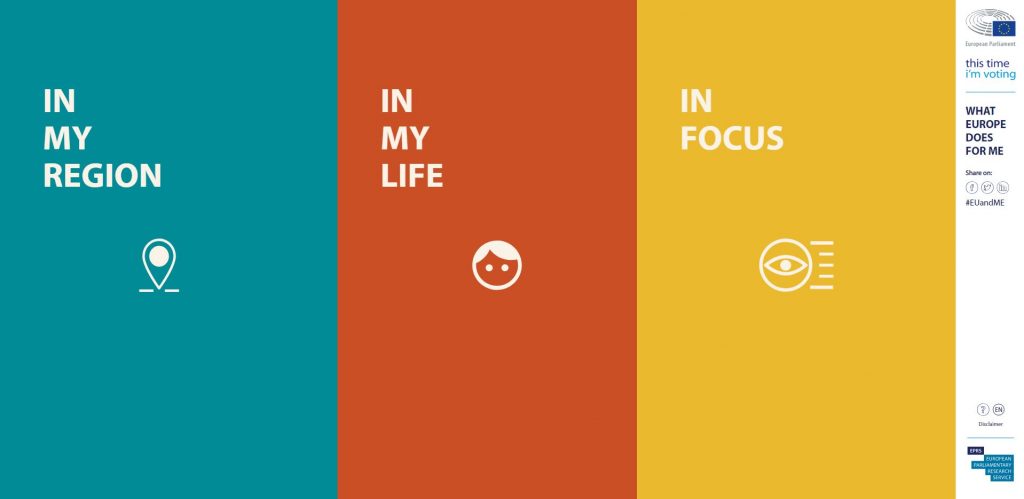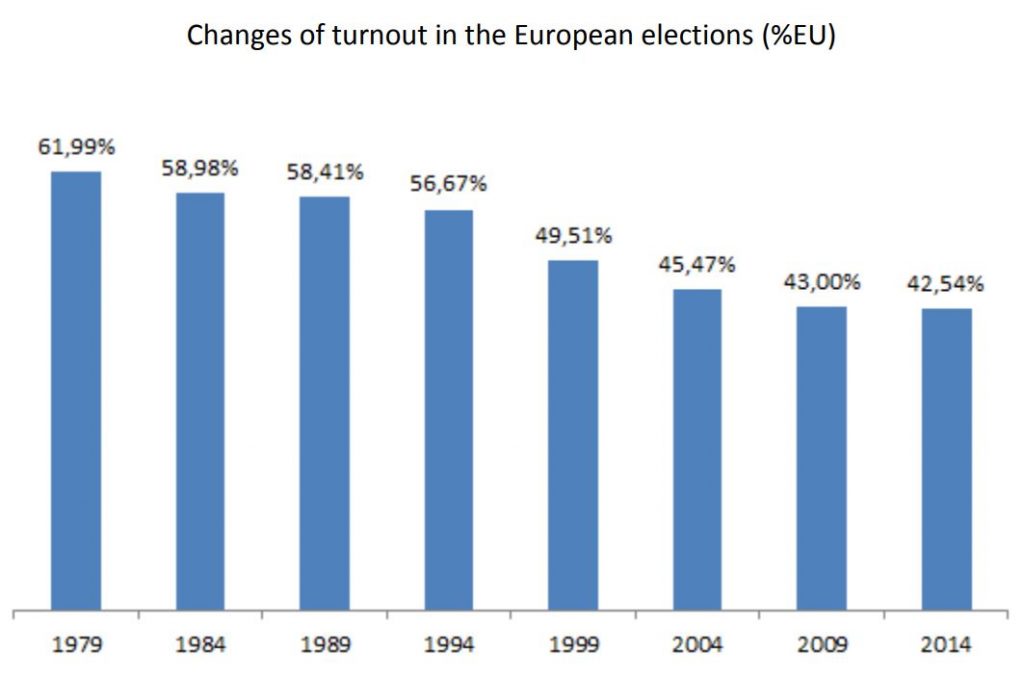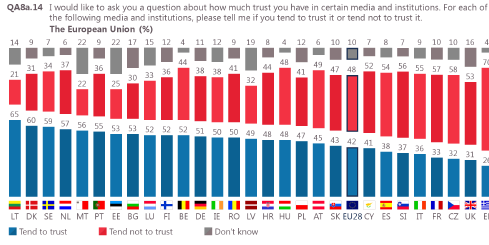The 2019 European elections are just around the corner, and the European Parliament is getting ready. For this reason, at the end of November 2018 the European Parliamentary Research Service (EPRS) launched a new platform called ‘What Europe does for me’. Although it needs further updates and improvements, it is an initiative worth mentioning.
If you have ever wondered how you benefit from EU membership, now you have a new valuable tool to help you answer your questions. The EPRS website has been designed to be interactive and user-friendly, as it can be seen from the welcome page: colourful, simple and direct.

European actions, funded projects, policies and goals are then introduced to citizens, efficiently organized in three clusters: 1372 regional notes, 403 citizen and social notes, and 24 policy-related papers – with more to come soon.
The creation of ‘What Europe does for me’ seems to be inscribed into a broader awareness campaign carried out by the EU, with the aim of interesting its citizens in EU politics and increasing the turnout of the upcoming European Parliamentary elections. As further proof, a more recent initiative is the launch of the portal European-elections.eu, which explains in detail how to vote for the European elections both in your home country and from abroad. The relevance of this website is significant: as expressed in the press release given by the European Parliament, it intends to help people find all the relevant information they need in one place. What is more, the information is country-specific and available in every official language of the EU; it is the first time such a tool is offered to EU citizens.The effort to break down complex policies, actions and regulations adopted at such a high-level to make connection with the everyday life of more than 741 million citizens, is nothing but remarkable. And indeed, it is fascinating to explore these interconnections.
But what are the factors behind the creation of such an articulated campaign?

In the last 40 years the electoral turnout has experienced a decreasing trend. In 1979, 61.99% of the total percentage of voters contributed in the selection of the European citizens’ representatives. However, in 2014 the turnout went down to 42.54% – almost 20 percentage points lower. And if we take into consideration the EU process of enlargement of the past 20 years, the numbers are certainly alarming.
Another factor that might have contributed to the creation of this portal is the necessity to make an impact on young voters. The slogan for the elections, ‘This time I’m voting’, already incites people to take action, but disenchantment with national, European and global affairs and politics is, unluckily, a common trait in the post-crisis generation.
The urge of raising awareness about the benefits of being European citizens in our hometown and daily lives also comes as a response to the rise of nationalistic feelings and polarisation inside societies. The latest World Economic Forum Global Risks Report described this tendency as global, hence not only affecting Europe, but potentially capable of causing the paralysis of the institutions, preventing them to adapt to the changes in society. The most recent events in Europe gave clear warnings of such political fragmentation: Brexit, the rise of extreme right wing parties, Euroscepticism in Hungary, Poland and Italy are only few examples. Finally, even the latest Eurobarometer report shows an overall process of distrust in the European Union starting in the post-crisis period.

We may conclude stating that, by underlining to what extent its citizens are benefitting from the membership, the European Union is not only aiming at increasing its citizens participation and engaging them in an active partnership, but also it is indirectly fighting for its credibility and integrity. So what does the EU do for us? It helps us navigate through this complex and unpredictable era.
Sources:
- http://ec.europa.eu/commfrontoffice/publicopinion/index.cfm/Survey/getSurveyDetail/instruments/STANDARD/surveyKy/2215
- http://www.europarl.europa.eu/pdf/eurobarometre/2014/post/post_ee2014_sociodemographic_annex_en.pdf .
- https://www.weforum.org/reports/the-global-risks-report-2019
- http://www.europarl.europa.eu/news/en/press-room/20190125IPR24304/european-elections-new-website-explains-how-to-vote-in-every-member-state
- https://www.european-elections.eu/